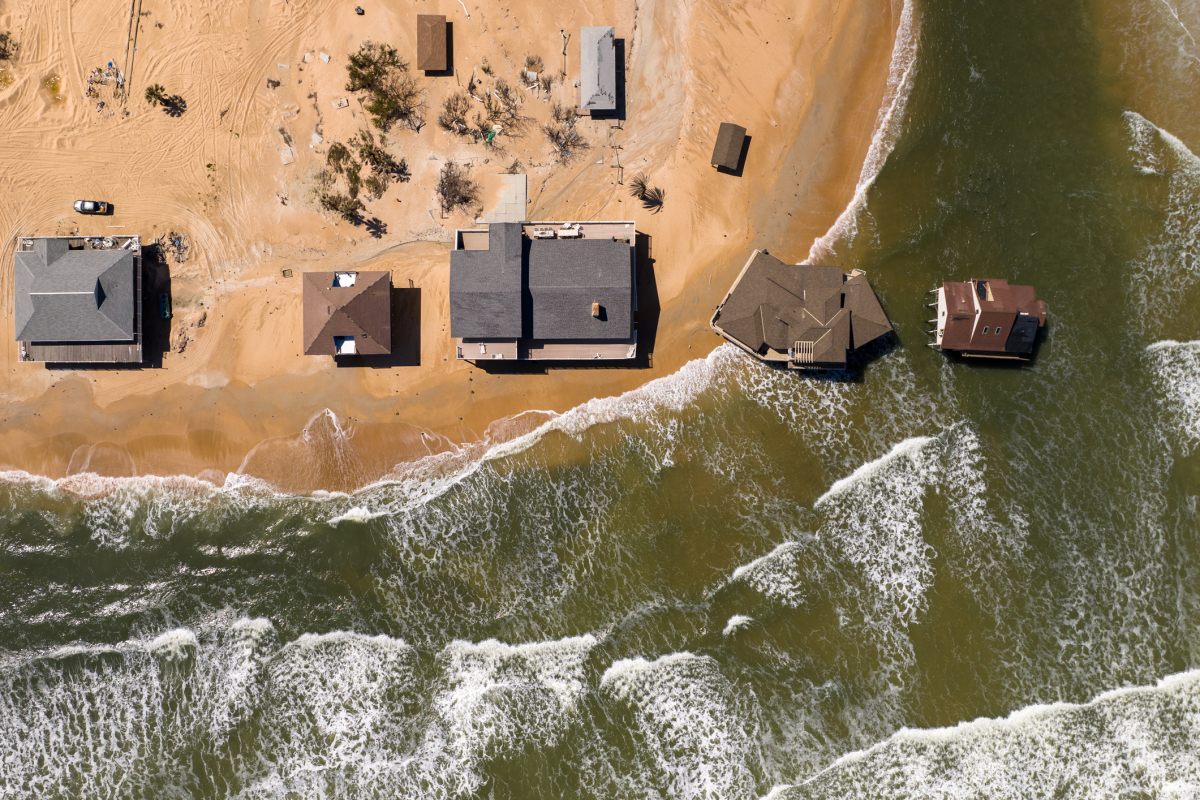Science
Sea Level Rise Threatens Over 100 Million Buildings Globally

A recent study led by researchers at McGill University reveals that more than 100 million buildings across the Global South face the risk of regular flooding due to rising sea levels, unless fossil fuel emissions are significantly reduced. This groundbreaking research, published in npj Urban Sustainability, marks the first comprehensive building-by-building assessment of how long-term sea level rise could impact coastal infrastructure in regions including Africa, Southeast Asia, and Central and South America.
The research team utilized detailed satellite imagery and elevation data to estimate the potential inundation of buildings at various sea level rise scenarios over the coming centuries. According to Prof. Natalya Gomez, a co-author of the study and Canada Research Chair in Ice Sheet–Sea Level Interactions, “Sea level rise is a slow, but unstoppable consequence of warming that is already impacting coastal populations and will continue for centuries.”
Significant Risks Even Under Best-Case Scenarios
The study examined possible sea level rises ranging from 0.5 metres to 20 metres. Alarmingly, even in a scenario with a modest rise of just 0.5 metres—a level anticipated even with ambitious emissions reductions—approximately three million buildings could be at risk. If emissions remain unchecked, projections suggest that rises of five metres or more could occur within a few hundred years, putting over 100 million buildings in jeopardy.
Many of these structures are situated in low-lying, densely populated areas, meaning entire communities and essential infrastructure, such as ports, refineries, and cultural heritage sites, stand to be affected. “We were surprised at the large number of buildings at risk from relatively modest long-term sea level rise,” stated Prof. Jeff Cardile, another coauthor of the study. “Some coastal countries are much more exposed than others, due to details of the coastal topography and locations of buildings.”
Implications for Urban Planning and Policy
The findings of this study provide critical insights for urban planners, policymakers, and communities preparing for the reality of rising sea levels. Eric Galbraith, a professor involved in the research, emphasized the widespread impact of climate change: “Every one of us will be affected by climate change and sea level rise, whether we live by the ocean or not. Disruption of essential infrastructure could severely impact our globally interconnected economy and food system.”
An interactive map created from the study’s data is publicly available via Google Earth Engine, allowing decision-makers to visualize which regions are most vulnerable. This information can guide climate adaptation strategies, such as constructing protective infrastructure, modifying land use planning, or, in some cases, facilitating managed retreat from at-risk areas.
The lead author, Maya Willard-Stepan, who conducted the study as part of an undergraduate research project, remarked, “There is no escaping at least a moderate amount of sea level rise. The sooner coastal communities can start planning for it, the better chance they have of continuing to flourish.”
The study titled “Assessing the Exposure of Buildings to Long-Term Sea Level Rise Across the Global South” was co-authored by N. Gomez, J. A. Cardille, E. D. Galbraith, and E. M. Bennett. It highlights the urgent need for action to mitigate the impact of climate change on vulnerable coastal infrastructures worldwide.
-

 Lifestyle1 month ago
Lifestyle1 month agoWinnipeg Celebrates Culinary Creativity During Le Burger Week 2025
-

 Health2 months ago
Health2 months agoMontreal’s Groupe Marcelle Leads Canadian Cosmetic Industry Growth
-

 Science2 months ago
Science2 months agoMicrosoft Confirms U.S. Law Overrules Canadian Data Sovereignty
-

 Education2 months ago
Education2 months agoRed River College Launches New Programs to Address Industry Needs
-

 Technology2 months ago
Technology2 months agoDragon Ball: Sparking! Zero Launching on Switch and Switch 2 This November
-

 Science2 months ago
Science2 months agoTech Innovator Amandipp Singh Transforms Hiring for Disabled
-

 Technology2 months ago
Technology2 months agoGoogle Pixel 10 Pro Fold Specs Unveiled Ahead of Launch
-

 Science2 months ago
Science2 months agoChina’s Wukong Spacesuit Sets New Standard for AI in Space
-

 Technology2 months ago
Technology2 months agoWorld of Warcraft Players Buzz Over 19-Quest Bee Challenge
-

 Science2 months ago
Science2 months agoXi Labs Innovates with New AI Operating System Set for 2025 Launch
-

 Business2 months ago
Business2 months agoDawson City Residents Rally Around Buy Canadian Movement
-

 Business2 months ago
Business2 months agoNew Estimates Reveal ChatGPT-5 Energy Use Could Soar
-

 Technology2 months ago
Technology2 months agoFuture Entertainment Launches DDoD with Gameplay Trailer Showcase
-

 Technology2 months ago
Technology2 months agoInnovative 140W GaN Travel Adapter Combines Power and Convenience
-

 Technology2 months ago
Technology2 months agoGlobal Launch of Ragnarok M: Classic Set for September 3, 2025
-

 Education2 months ago
Education2 months agoAlberta Teachers’ Strike: Potential Impacts on Students and Families
-

 Technology2 months ago
Technology2 months agoNew IDR01 Smart Ring Offers Advanced Sports Tracking for $169
-

 Technology2 months ago
Technology2 months agoArsanesia Unveils Smith’s Chronicles with Steam Page and Trailer
-

 Technology2 months ago
Technology2 months agoHumanoid Robots Compete in Hilarious Debut Games in Beijing
-

 Science2 months ago
Science2 months agoNew Precision Approach to Treating Depression Tailors Care to Patients
-

 Health2 months ago
Health2 months agoGiant Boba and Unique Treats Take Center Stage at Ottawa’s Newest Bubble Tea Shop
-

 Technology2 months ago
Technology2 months agoQuoted Tech Launches Back-to-School Discounts on PCs
-

 Business2 months ago
Business2 months agoBNA Brewing to Open New Bowling Alley in Downtown Penticton
-

 Technology2 months ago
Technology2 months agoDiscover the Relaxing Charm of Tiny Bookshop: A Cozy Gaming Escape










